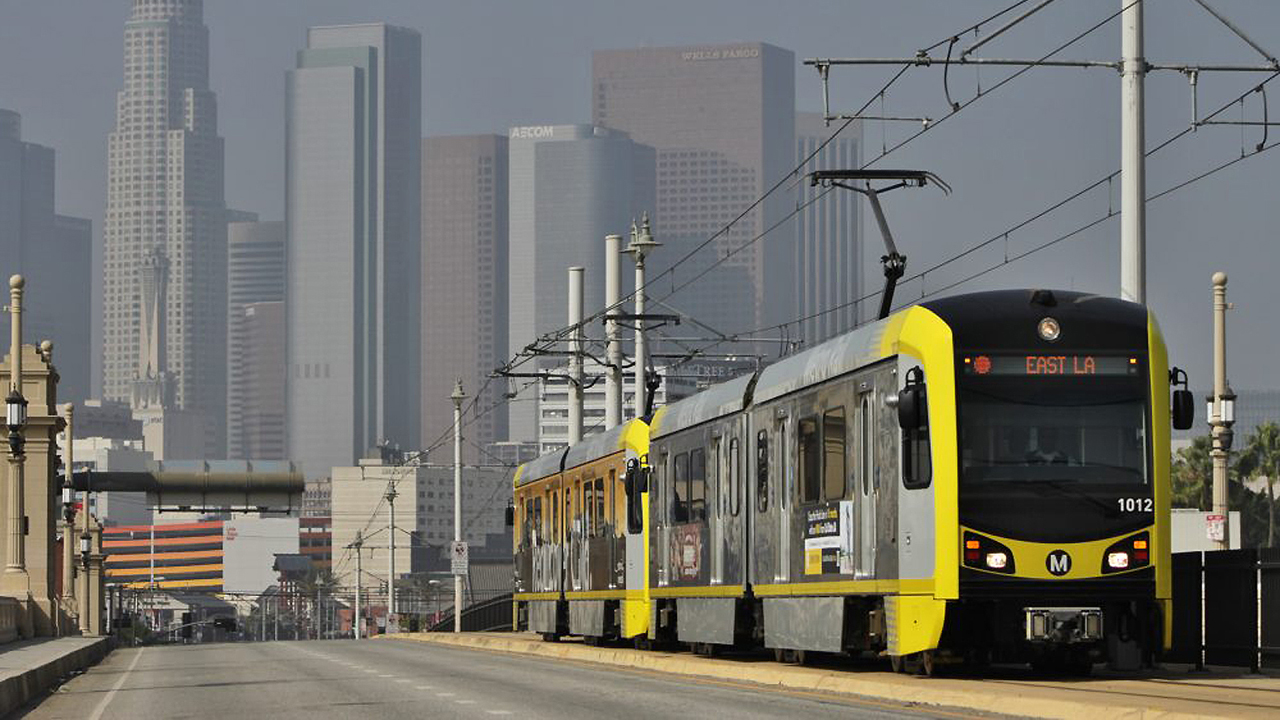Yesterday, Caltrans announced nearly $82 million in Low Carbon Transit Operations Program (LCTOP) funding for 134 local public transportation projects to reduce greenhouse gas emissions and increase transportation options by providing new and expanded bus and rail service for disadvantaged and low-income communities.
"The climate crisis is disproportionately affecting low-income households and communities of color,” said Caltrans Director Toks Omishakin in a statement. “This investment will help reduce environmental impacts from transportation and help connect communities, particularly those facing economic barriers to transportation options."
LCTOP is funded by the Cap‑and‑Trade Program from the Greenhouse Gas Reduction Fund. The Cap-and-Trade Program is one of many programs developed under AB 32, the California Global Warming Solutions Act of 2006 implemented to fight climate change. It is designed to reduce greenhouse gases from the largest sources of emissions in California, to drive innovation and steer the state toward a clean energy economy.
Some of the projects that will benefit from LCTOP funding include (to see a full list, click here):
- 31 projects offering free or reduced fares to encourage lifelong transit users, including young riders, seniors, veterans and persons with disabilities:
- San Francisco Municipal Transportation Agency: $7.44 million for free bus and rail service for low-income seniors and people with disabilities.
- San Joaquin and Stanislaus counties: $1.54 million for three projects to expand free or reduced fares for riders in disadvantaged communities.
- Orange County Transportation Authority: $4.09 million for two projects to allow for free and reduced fares for Orange Coast College students and low-income Orange County residents.
- North Coast transit agencies: including the City of Arcata and Mendocino Plumas, and Siskiyou counties: $22,830 for four projects offering free fares to low-income residents, youth and college students.
- 31 projects providing new and expanded transit service for better access to jobs and educational sites, as well as expanding transit options that serve priority populations:
- Los Angeles County Metropolitan Transportation Authority: $21 million to pilot a fare-less system for low-income riders and K-12 students, and new transit service on the soon-to-open Crenshaw/LAX light rail line.
- Sacramento Regional Transit District: $1.9 million to increase the frequency of service to 30 minutes and expand service connectivity for city college students.
- Shasta Regional Transportation Agency: $183,165 for two projects to expand both on-demand and weekday service.
- 22 projects purchasing zero-emission vehicles and related equipment/infrastructure:
- San Diego Metropolitan Transit System: $3.44 million for continued procurement of zero-emission electric buses.
- Fresno County Rural Transit Agency: $215,761 to purchase an electric bus.
- San Mateo County Transit District: $1.04 million to help purchase 15 zero-emission buses to replace diesel-electric hybrids.
- 16 projects purchasing, constructing or installing infrastructure, equipment, or facilities to support zero-emission vehicle(s):
- Solano County Transit: $504,171 for upgrades to its operations and maintenance facility to allow for simultaneous charging for 10 zero-emission buses.
- Sunline Transit Agency: $567,065 to expand a solar microgrid that will supply renewable energy for its hydrogen-powered transit fleet.
- North County Transit District: $1.24 million for construction of a hydrogen fueling station.






